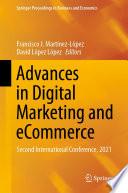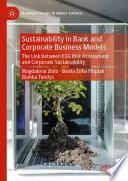The Link Between ESG Risk Assessment and Corporate Sustainability
The book explains the impact of bank business models on company business models by discussing the relationship among banks decision-making processes, sustainable values creation in company business models, and ESG risk. The monograph provides a combination of financial and management-related activities, in the context of bank business models, taking into account the concept of sustainability, and will be of particular interest to both in-house practitioners, giving them innovative knowledge about the models presented and used, and to students and young researchers. Magdalena Ziolo is Associate Professor at University of Szczecin, Poland. Her research and teaching scope focus on finance, banking and sustainability. She has extensive experience gained in financial institutions. She has received scholarships from the Dekaban-Liddle Foundation (University of Glasgow, Scotland) and Impakt Asia Erasmus + (Ulan Bator, Mongolia). She was a member of State Quality Council, Kosovo Accreditation Agency. She is Principal Investigator in the research projects funded by National Science Center, Poland in the field sustainable finance. She is the author and editor of numerous books, mostly about financing sustainable development. Beata Zofia Filipiak is Professor at University of Szczecin, Poland. She has worked in different financial institutions and obtained the qualifications of a tax advisor in 1998. She was involved in 25 scientific projects regarding corporate financial strategies, financial strategies of LGU's, and sustainable development and finance. Her research was financed by the Polish Committee for Scientific Research, DAAD (Deutscher Akademischer Austausch Dienst), and the Polish-German Foundation for Science. She carries out research supported by National Science Centre Poland in the scope of financing sustainable development. Blanka Tundys is Associate Professor at University of Szczecin, Poland. Her research interests span green supply chain, sustainable supply chain, close loop chain, eco-innovation, city logistics, logistics, transport systems, city economics, strategy in logistics, transportation, performance measurement in logistics and supply chain, efficiency in logistics, circular economy, smart city, risk management in the supply chain, uncertainty, vulnerability of the supply chain, logistics, AHP, MCDA, and simulation.
Union, Youth on the Move, Digital Agenda for Europe, Resourceefficient Europe, Industrial Policy in an Era of Globalization, An Agenda for New Skills and Jobs, and European Platform Against Poverty.2 In the context of environmental ...








